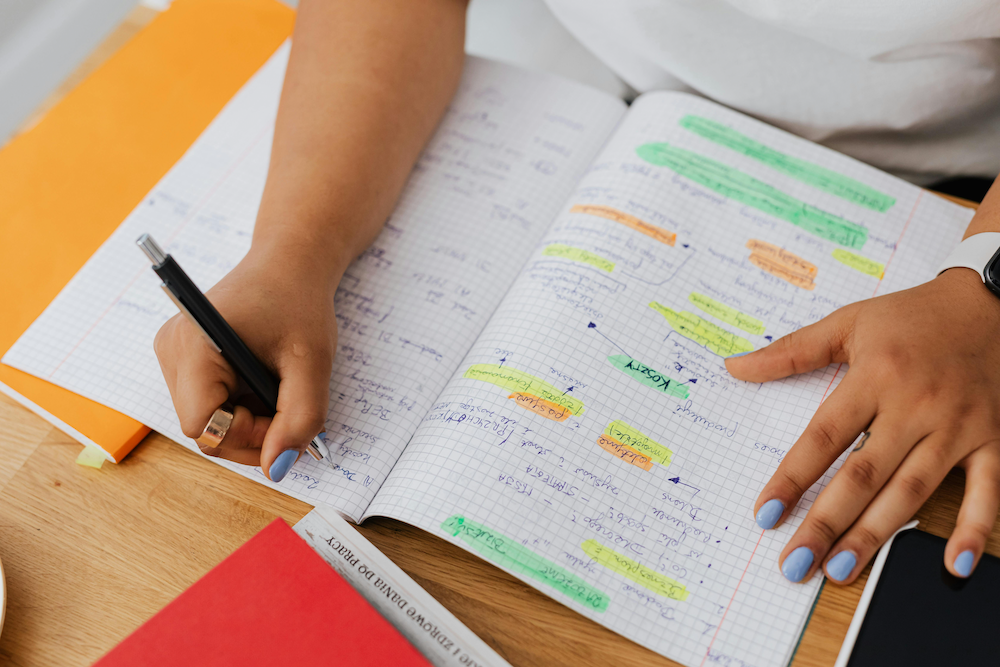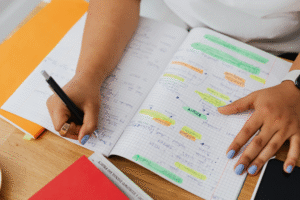IGCSE Additional Mathematics (0606) is an advanced mathematics course designed for students who have a strong aptitude in mathematics and wish to extend their knowledge and skills. It provides a deeper understanding of mathematical concepts, pushing students beyond the standard IGCSE Maths curriculum. This course is ideal for those considering further studies in fields such as A-level Mathematics, engineering, computer science, and other STEM-related disciplines. Through this course, students gain valuable problem-solving and critical thinking skills that are essential for academic success at higher levels.
Why Study IGCSE Additional Mathematics?
- Benefits for Academically Inclined Students: IGCSE Additional Mathematics offers numerous benefits for students with a strong mathematical background. It strengthens their understanding of advanced topics and equips them with the skills required to tackle complex mathematical problems. The course challenges students, encouraging them to think logically, reason critically, and approach problems from different perspectives.
- Prepares Students for Higher Education: By studying Additional Mathematics, students are well-prepared for further studies in mathematics-heavy disciplines, such as A-level Mathematics, IB Math, or university courses in engineering, computer science, and physics. This course is a strong foundation for future academic success and can open doors to prestigious programs in STEM fields.
- Development of Problem-Solving and Analytical Skills: This course helps students develop their problem-solving, logical reasoning, and critical thinking skills, all of which are crucial for academic growth. The ability to approach problems systematically and analytically is invaluable in both academic and real-world scenarios.
Cambridge IGCSE Additional Mathematics Syllabus
Core Topics Covered:
- Functions
- Quadratic functions
- Factors of polynomials
- Equations, inequalities and graphs
- Simultaneous equations
- Logarithmic and exponential functions
- Straight-line graphs
- Coordinate geometry of the circle
- Circular measure
- Trigonometry
- Permutations and combinations
- Series
- Vectors in two dimensions
- Calculus
This syllabus builds on the foundational knowledge acquired in the standard IGCSE Mathematics course and introduces more advanced mathematical concepts. Students will deepen their understanding of core topics while exploring complex applications in real-world contexts. These additional topics not only prepare students for higher-level studies in mathematics but also develop critical problem-solving and analytical skills.
Algebra and Functions
Overview
Algebra and functions form the backbone of many mathematical disciplines. In this topic, students will expand their knowledge of algebraic expressions, equations, and functions. The focus will be on more advanced techniques such as solving quadratic, cubic, and simultaneous equations, as well as working with inequalities and function transformations.
Learning Objectives
Students will develop the following skills:
- Solve and manipulate complex algebraic expressions and equations.
- Understand the behavior and properties of functions, including quadratic, cubic, and rational functions.
- Explore function transformations such as translations, stretches, and reflections.
- Work with inequalities and solve problems involving linear and quadratic inequalities.
Subtopics Covered
- Quadratic Equations and Functions
- Simultaneous Equations
- Inequalities
- Function Graphs and Transformations
- Sequences and Series
Geometry and Trigonometry
Overview
Geometry and trigonometry in the Cambridge IGCSE Additional Mathematics syllabus take students into more complex areas, building on basic principles of shapes, angles, and trigonometric identities. This topic focuses on theorems and properties of circles, advanced applications of trigonometric functions, and solving real-world problems using trigonometry.
Learning Objectives
By the end of this topic, students will be able to:
- Apply geometric theorems and properties to solve complex problems.
- Use trigonometric identities and the sine, cosine, and tangent rules in solving problems.
- Understand and apply the properties of circles, including tangents, chords, and angles.
- Solve problems involving bearings, angles of elevation, and depression.
Subtopics Covered
- Circle Theorems
- Trigonometric Ratios and Identities
- Sine and Cosine Rules
- Bearings and Applications
- Advanced Geometric Constructions
Calculus (Differentiation and Integration)
Overview
In the calculus section, students will be introduced to the fundamental concepts of differentiation and integration. These topics allow students to explore how mathematical functions change and how to calculate areas under curves. Differentiation focuses on rates of change, while integration is concerned with calculating areas and solving problems involving accumulation.
Learning Objectives
This topic covers:
Differentiation and its applications, including finding gradients of curves and solving optimization problems.
Integration techniques for calculating areas under curves and solving problems involving displacement and velocity.
Understanding the connection between differentiation and integration as inverse processes.
Subtopics Covered
- Rules of Differentiation
- Applications of Differentiation (Optimization)
- Definite and Indefinite Integrals
- Applications of Integration (Area under curves)
Vectors and Matrices
Overview
Vectors and matrices are essential tools in mathematics that provide powerful ways to model and solve problems in multiple dimensions. In this topic, students will study vector operations, including addition, scalar multiplication, and dot products, as well as matrix operations such as addition, multiplication, and determinants.
Learning Objectives
Students will learn:
- How to work with vectors in both two and three dimensions.
- Perform operations with matrices, including solving simultaneous linear equations.
- Understand the geometric interpretation of vectors and apply them to solve problems in physics and engineering contexts.
Subtopics Covered
- Vector Addition and Scalar Multiplication
- Dot Product and Cross Product
- Matrix Operations
- Applications of Vectors in Geometry
- Solving Linear Systems with Matrices
Logarithms and Exponential Functions
Overview
Logarithms and exponential functions are key concepts in higher mathematics, with applications in areas such as finance, biology, and physics. This section will cover the laws of logarithms, exponential growth and decay, and solving equations involving logarithmic and exponential functions.
Learning Objectives
By the end of this topic, students will be able to:
- Apply the laws of logarithms and solve equations involving logarithms.
- Understand exponential growth and decay, and solve related problems.
- Use logarithms to solve real-world problems involving growth, decay, and compounding.
Subtopics Covered
- Laws of Logarithms
- Exponential Growth and Decay Models
- Solving Logarithmic and Exponential Equations
- Applications of Logarithms and Exponentials in Real Life
This structure mirrors the rigorous progression of mathematical concepts introduced in the Cambridge IGCSE Additional Mathematics syllabus. Each chapter builds on the previous one, ensuring students develop a strong understanding of both basic and advanced mathematical principles.
Assessment Structure
The assessment for IGCSE Additional Mathematics typically consists of two written exams that test students on the full syllabus. The exams evaluate both their knowledge of mathematical concepts and their ability to apply them to problem-solving. There may also be practical components, depending on the exam board’s specific requirements. Students are assessed on their accuracy, problem-solving skills, and the ability to demonstrate clear, logical reasoning in their solutions.
OWIS’s Approach to Supporting IGCSE Additional Maths Students
At OWIS, we believe in providing personalised support for IGCSE Additional Mathematics students. Our approach includes:
- Personalised Learning with Small Class Sizes: Our small class sizes ensure that each student receives individual attention from dedicated teachers. This enables a tailored learning experience that meets the specific needs of each student.
- Use of Advanced Learning Tools and Technology: We integrate technology and advanced learning tools into our lessons to help students grasp abstract mathematical concepts. This includes interactive learning platforms, online resources, and tools for visualizing complex mathematical ideas.
- Regular Assessments and Feedback: To ensure students are on track, we conduct regular assessments and provide detailed feedback. This helps identify areas for improvement and guides students in refining their understanding of the material.
Supporting Your Child’s IGCSE Additional Maths Journey as a Parent
As a parent, you play a vital role in supporting your child’s success in IGCSE Additional Mathematics. Here are some ways to help them on their journey:
- Understanding the Syllabus: Familiarise yourself with the key topics in the syllabus so you can better follow your child’s progress. This understanding will enable you to engage with their learning process more effectively.
- Encourage Regular Practice: Encourage your child to practice regularly. Mathematics requires consistent effort, and regular practice is key to mastering complex topics. Help your child set up a balanced study schedule that includes time for both study and relaxation.
- Stay Involved with OWIS: At OWIS, we prioritise keeping parents informed through regular progress updates and feedback sessions. Engaging with teachers during parent-teacher meetings will help you stay updated on your child’s academic development and provide the necessary support at home.
Cambridge IGCSE Additional Mathematics Study Tips
To excel in IGCSE Additional Mathematics, here are some helpful study tips:
- Create a Study Schedule: Consistent study is crucial for retaining complex concepts. Set aside regular time for math practice and break down the syllabus into manageable sections.
- Practice Past Papers: Familiarise yourself with the exam format and question types by regularly practicing past papers. This will help you become more comfortable with the exam and improve your time management skills.
- Use Visual Aids: Diagrams, graphs, and online videos can help you visualize mathematical concepts, making them easier to understand. Utilise these resources to strengthen your grasp on challenging topics.
- Ask for Help When Needed: Don’t hesitate to reach out to your teacher or peers when you encounter difficulties. Collaboration and seeking help when needed will make learning more effective.
Is IGCSE Additional Maths at OWIS the Right Choice for Your Child?
IGCSE Additional Mathematics is an advanced subject that challenges students and prepares them for future academic pursuits in math-intensive fields. At OWIS, we provide the resources, support, and personalized attention necessary for your child’s success in this course.
If you’re unsure whether this course aligns with your child’s academic goals, we encourage you to consult with OWIS for guidance. Our experienced educators can help determine whether IGCSE Additional Mathematics is the right fit for your child and support them throughout their learning journey.
Reach out to OWIS for more information on the IGCSE Additional Mathematics course and how it can set your child on the path to success in higher education and beyond. Book a school tour today!










